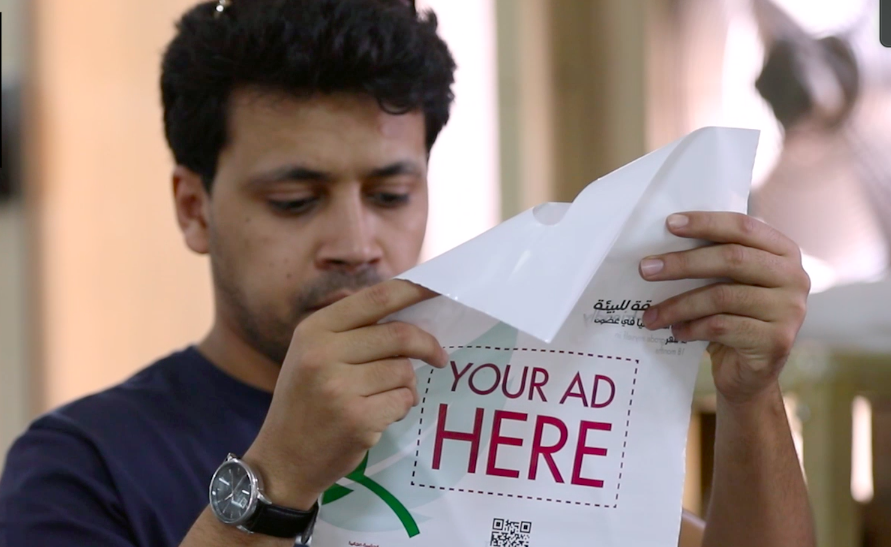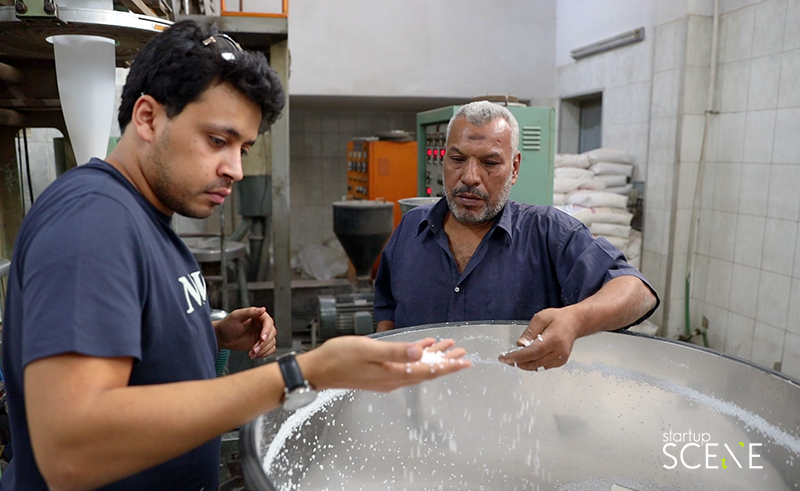Meet iSupply: The Egyptian Startup Finding an Alternative to Plastic
Staff Writer Ahmed Budalama takes a deep dive into a Cairo-based startup’s effort to the nation’s plastic waste crisis.

It is, without a doubt, a fresh perspective on market trends, as agri-tech expected to solidify its prominence as a key player in the world’s economy and combat the ruthless progress facing fin-tech. Perhaps you’re wondering, why? Why is there a major shift in the consumer good’s market that is causing a tidal wave of trends forcing small and large sized companies to reassess their product offering and welcome a greener approach? And also, when will the façade of pretend-green campaigns shatter to reveal a viable solution to the world’s most pressing issue: abolishing the plastic waste crisis, or at least minimising the damages done to the environment.
Simply trying to solve this dilemma, an Egyptian startup called iSupply emerged with a friendly solution that combats plastic waste and altering the Egyptian market’s perspective on consumer goods. iSupply is a plastic manufacturing company that has been creating eco-friendly plastic bags since 2016, when they noticed a demand for plastic alternative bags that are compliant with European standard of plastic, which proposes the reduction of single-use plastic consumer products and moderation of plastic usage in compliance with the EU's Sustainable Development goals. The startup identified an opportunity in the gap in the Egyptian market’s quality of plastic bags that were not fit to the standard for eco-friendly use, and multi-national franchises unable to operate in the region as a result of that.
Just on the outskirts of the Egyptian capital lies iSupply's factory where yours truly paid a visit to explore the core of the operations. I was unable to visit and scout the location beforehand, so my production team and I were faced with an obstacle while trying to record the video interview with the startup's co-founder. As you can imagine, the factory was packed with machinery and noise, which was a hurdle to overcome when ensuring the video's sound quality. We politely asked and tried to reason with the factory owners if we can interrupt the production and pause, so the machine noise would decrease. Eager to record, yet more focused on the production itself, the iSupply team refused to shut down the machinery, which I found very respectable as we were able to record the operations and the interview in the same time period; improvising with what we had without compromising.
Since their inception, iSupply have been spreading awareness about plastic-use to their clients while offering them an alternative solution to plastic: the e-bag. "We headed down to the streets and started giving out these bags for free, which caused a stir from the vendors’ perspective considering that free eco-friendly plastic bags are cheaper than the ones they are using. The ‘e-bag’ has a space for advertisement, where buyers can leverage that space to advertise their goods and services to thousands of people, in an unconventional way as opposed to traditional methods of advertisement,” iSupply's Co-founder Karim Youssef tells Startup Scene.

The e-bag initiative emerged not only as a reliable supply connection that the region can benefit from, but as a solution for the issue faced at large. The startup began using the same technique to create these e-bags and give them out to mini-markets to hypermarkets, covering many areas of Greater Cairo. Startup Scene witnessed the operation from beginning to end as we paid a visit to their factory, with the humbling effort to the plastic bag alternative lying in the difference when facing a single-use plastic bag. In the creation of the ‘e-bag’, the plastic is controlled to allow for an end-date, when the plastic biodegrades into fertilised soil that could further nurture the environment.
“The technology used has been done before throughout the world, but hasn’t seen the light in the region because buyers tend to have the opinion that the environment doesn’t matter, and what matters more is money or power or whatever, so we took that into consideration and thought of a solution that could fix their problems as well. These are the things we try to overcome so we can solve problems. At the same time, we make other companies that manufacture plastic like us to consider these alternative solutions. Instead of offering plastic bags, we could all offer eco-friendly products. As a startup, we are not the only shareholders benefitting, because the consumer goods market wins something, as well as the country’s greater good for the environment,” adds Youssef.
According to the list of companies supported by Y Combinator, one of the leading accelerators in Silicon Valley, only 8% of 250 companies funded in 2018 had sustainability as part of their work or prescribed in their agenda. With the recent surge in eco-friendly products marking their prominence on the market, it is a question of reliability and proven efficiency that makes or breaks a so-called “green startup.” The fight for preserving the Earth’s resources as well as eliminating all what causes harm to the environment has been one of the highlighted trends the market has faced this year, with the upcoming year causing the urge to fight harder and stronger than before. Regardless of green startups still remaining a minority industry, a positive sign for the startups is the growing number of incubators and accelerator programmes in Europe and the United States that focus on sustainable development in a startup environment.
The anticipation of green startups' growth has been witnessed in recent investment trends, after Egyptian sustainable solar energy startup KarmSolar scores a whopping $25 million investment. As revealed in the annual 'State of Green Business' report, 75% of global companies consider consumers as one of the key drivers of risks and opportunities related to carbon emissions from their products and services, as it is no longer a fluffy concept to be eco-friendly and offer green solutions through their products. From new age green-wave movements and viral “save the turtles” campaigns, to several government bodies and multi-national corporations banning single-use plastic from being consumed and even manufactured, the race for a greener future has all tree-huggers watering the other side of their business ideas.




















